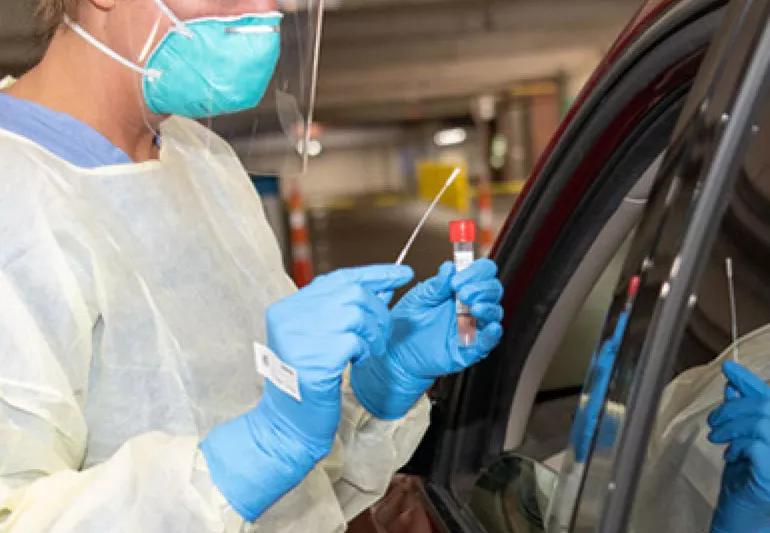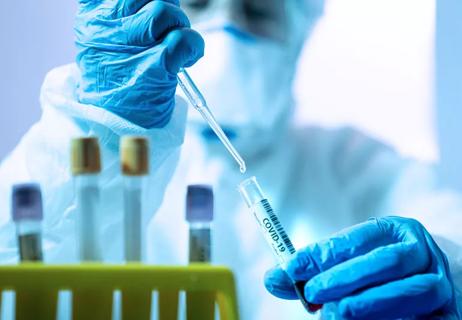Advertisement
You have all the symptoms, but here’s why you still might not get tested

As more cases of COVID-19 are reported, guidelines on who should be tested are constantly changing. For some people, the inability to get tested has left them feeling frustrated, especially when they’re experiencing symptoms.
Advertisement
Cleveland Clinic is a non-profit academic medical center. Advertising on our site helps support our mission. We do not endorse non-Cleveland Clinic products or services. Policy
“In the beginning of all this, it was all about who could do the test,” says infectious disease specialist Frank Esper, MD. “Then it was about who has enough machines, viral media or swabs. It’s these issues that have led to limitations in the number of tests we can perform. For now, we have to be very deliberate as to who we test and why we’re testing them.”
In general, lack of testing, despite symptoms, is a direct result of not having enough materials needed to perform the tests.
Because of this, most health systems have had to prioritize testing.
Every state and hospital is different, but most have put together testing guidelines about who should get tested and under what circumstances. Right now, COVID-19 testing is focused on high-risk patients.
This means that patients should be symptomatic and fall into one of several categories, which often includes:
Advertisement
Testing is done to help determine if being positive for coronavirus should change a person’s course of treatment.
No doubt, this can be aggravating for people who don’t fit the criteria to get tested, but are still sick and experiencing symptoms.
But, there is a silver lining. According to one report, about 80% of those with COVID-19 will have mild to moderate symptoms and make a full recovery.
“For those who have a cough and fever and maybe they’re at home on the couch – those people probably won’t be tested at this point in time,” explains Dr. Esper. “And they don’t need to be. The majority of people will recover just fine, even without a test.”
It’s also important to point out that we’re still in cold and flu season (and a particularly bad one at that). You might be sick with regular, run-of-the-mill influenza rather than coronavirus.
But test production and accessibility is ramping up. Right now, not everybody is going to be able to get tested, but we’re increasing the number of tests that we do each and every week, says Dr. Esper. Eventually we want to get to a point of being able to offer a test to everybody who may be infected, but we’re just not there right now.
For some people, the inability to be tested right now leads to the question – will I ever know if I had it?
“Eventually, there will be a blood test to determine whether or not you ever had the infection or whether or not you were ever exposed to it,” says Dr. Esper. “Healthcare providers are talking about the blood test right now, but unfortunately that’s way in the future.”
Advertisement
Learn more about our editorial process.
Advertisement

This at-home test for COVID-19 and flu can help you figure out what’s causing your symptoms, and how best to treat them

Above all, follow the package’s step-by-step instructions

Do you know the difference between a molecular test and antigen test for COVID-19?

Here's what to know and keep an eye out for

Many questions, but few answers

Tetanus is easy to prevent but tough to treat — vaccines are your best defense

Germs spread quickly and easily, so covering your face, washing your hands and avoiding close contact are key

Both are respiratory infections, but bronchitis affects your bronchial tubes, while pneumonia affects the air sacs in your lungs

If you’re feeling short of breath, sleep can be tough — propping yourself up or sleeping on your side may help

If you fear the unknown or find yourself needing reassurance often, you may identify with this attachment style

If you’re looking to boost your gut health, it’s better to get fiber from whole foods